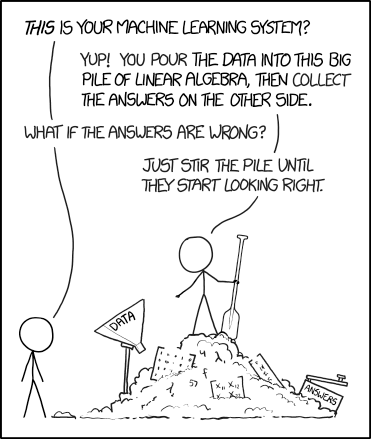Science Fiction
Dictionary
A B C D E F G H I J K L M N O P Q R S T U V W X Y Z
An 'Ethical Black Box' For Robots?

The idea that robots should be equipped with an "ethical black box" that would enable scientists to check their ethical decision-making has been floated by researchers at a conference at the University of Surrey.
“Serious accidents will need investigating, but what do you do if an accident investigator turns up and discovers there is no internal datalog, no record of what the robot was doing at the time of the accident? It’ll be more or less impossible to tell what happened,” Winfield said.
“The reason commercial aircraft are so safe is not just good design, it is also the tough safety certification processes and, when things do go wrong, robust and publicly visible processes of air accident investigation,” the researchers write in a paper to be presented at the Surrey meeting.
The introduction of ethical black boxes would have benefits beyond accident investigation. The same devices could provide robots – elderly care assistants, for example – with the ability to explain their actions in simple language, and so help users to feel comfortable with the technology.
Science fiction great Arthur C. Clarke explored this idea in the excellent 1984 novel 2010 (which was also made into a movie), his sequel to 2001: A Space Odyssey.
In the movie, Dr. Chandra, the creator of the HAL 9000 artificial intelligence computer, returns to the spaceship Discovery, now orbiting Jupiter, to determine the reason for the ethical lapse that causes HAL to kill astronaut Frank Poole.
Winfield and Marina Jirotka, professor of human-centred computing at Oxford University, argue that robotics firms should follow the example set by the aviation industry, which brought in black boxes and cockpit voice recorders so that accident investigators could understand what caused planes to crash and ensure that crucial safety lessons were learned. Installed in a robot, an ethical black box would record the robot’s decisions, its basis for making them, its movements, and information from sensors such as cameras, microphones and rangefinders.
(Dr. Chandra explains HAL's apparent ethical lapse)
Even though 2010 was just a movie, and Hal is a science-fictional computer, it illustrates why a simple list of instructions executed may not fully explicate what happened. This problem will be exacerbated by the fact that AI computers of the near future will rely heavily on deep learning techniques that work, but are poorly understood.

(Machine Learning at XKCD)
You might also be interested in this article Can You Give A Robot A Conscience? which explores similar themes. The discussion with the SAL 9000 computer (see embedded video) is also revealing. Also, see Machine Ethics With Prospective Logic, which discusses the different results that can be reached by "moral" systems.
Via The Guardian.
Scroll down for more stories in the same category. (Story submitted 7/28/2017)
Follow this kind of news @Technovelgy.| Email | RSS | Blog It | Stumble | del.icio.us | Digg | Reddit |
Would
you like to contribute a story tip?
It's easy:
Get the URL of the story, and the related sf author, and add
it here.
Comment/Join discussion ( 0 )
Related News Stories - (" Robotics ")
Golf Ball Test Robot Wears Them Out
"The robot solemnly hit a ball against the wall, picked it up and teed it, hit it again, over and again...' - Frederik Poh, 1954.
PaXini Supersensitive Robot Fingers
'My fingers are not that sensitive...' - Ray Cummings, 1931.
Artificial Skin For Robots Is Coming Right Along
'... an elastic, tinted material that had all the feel and appearance of human flesh and epidermis.' - Harl Vincent (1934)
Robot Guard Dog On Duty
I might also be thinking of K-9 from Doctor Who.
Technovelgy (that's tech-novel-gee!) is devoted to the creative science inventions and ideas of sf authors. Look for the Invention Category that interests you, the Glossary, the Invention Timeline, or see what's New.
Science Fiction
Timeline
1600-1899
1900-1939
1940's 1950's
1960's 1970's
1980's 1990's
2000's 2010's
Current News
Leader-Follower Autonomous Vehicle Technology
'Jason had been guiding the caravan of cars as usual...'
Golf Ball Test Robot Wears Them Out
"The robot solemnly hit a ball against the wall, picked it up and teed it, hit it again, over and again...'
Boring Company Vegas Loop Like Asimov Said
'There was a wall ahead... It was riddled with holes that were the mouths of tunnels.'
Rigid Metallic Clothing From Science Fiction To You
'...support the interior human structure against Jupiter’s pull.'
Is The Seattle Ultrasonics C-200 A Heinlein Vibroblade?
'It ain't a vibroblade. It's steel. Messy.'
Roborock Saros Z70 Is A Robot Vacuum With An Arm
'Anything larger than a BB shot it picked up and placed in a tray...'
A Beautiful Visualization Of Compact Food
'The German chemists have discovered how to supply the needed elements in compact, undiluted form...'
Bone-Building Drug Evenity Approved
'Compounds devised by the biochemists for the rapid building of bone...'
Secret Kill Switch Found In Yutong Buses
'The car faltered as the external command came to brake...'
Inmotion Electric Unicycle In Combat
'It is about the size and shape of a kitchen stool, gyro-stabilized...'
Grok Scores Best In Psychological Tests
'Try to find out how he ticks...'
PaXini Supersensitive Robot Fingers
'My fingers are not that sensitive...'
Congress Considers Automatic Emergency Braking, One Hundred Years Too Late
'The greatest problem of all was the elimination of the human element of braking together with its inevitable time lag.'
The Desert Ship Sailed In Imagination
'Across the ancient sea floor a dozen tall, blue-sailed Martian sand ships floated, like blue smoke.'
The Zapata Air Scooter Would Be Great In A Science Fiction Story
'Betty's slapdash style.'
Thermostabilized Wet Meat Product (NASA Prototype)
There are no orbiting Michelin stars. Yet.
